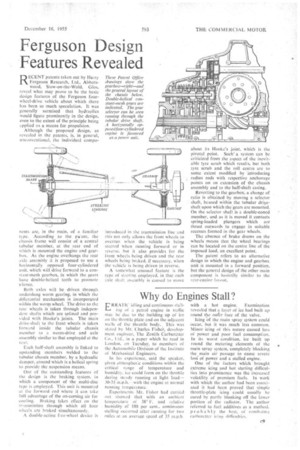Why do Engines Stall?
Page 49

If you've noticed an error in this article please click here to report it so we can fix it.
ERRATIC idling and continuous sailnig of a petrol engine in traffic may be due to the building up of ice On the throttle plate and on the adjacent walls of the throttle body. This was stated by Mr, Charles Fisher, development engineer, The Zenith Carburetter Co., Ltd., in a paper which he read in London. on Tuesday, to members of the Automobile Division of the Institute of Mechanical Engineers.
in his experience, said the speaker, given atmospheric conditions within the critical range of temperature and humidity, ice could form on the throttle during steady running at light load30-35 m.p.h. -; with the engine at normal running temtwrature.
Experiments Mr. Fisher had carried out showed that with an ambient temperature of 38° F. and relative humidity of 100 per cent., continuous stalling occurred after running for Iwo miles at an average speed of 35 m.p.h. with a hot engine._ Examination revealed that a layer of ice had built up round the ourer face of the valve.
Icing of the main spray system could occur, hut it was much less common. Minor, icing of this nature caused loss of power and poor fuel consumption. In its worst condition, ice built up round the metering elements of the main spray system, completely blocking the main air passage to cause severe loss of power and a stalled engine.
One of the factors which brought extreme icing and hot starting difficulties into prominence was the increased volatility of premium fuels. In work with which the author had been associated it had been proved that simple throttle•plate icing could usually he cured by partly blanking off the lower portion of the radiator. The author referred to fuel additives as a method. probably the hest, of comhatine carburetter icing difficulties.
















































































































